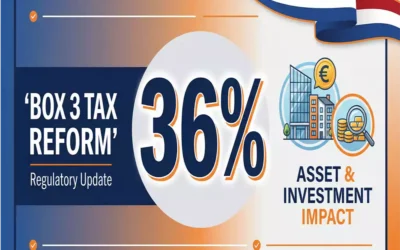
The tax system in Hungary for 2024 is the best in terms of income tax and foreign corporate tax. This makes Hungary an attractive country for many startup investment companies looking to enter the European market. At the beginning of the year, Hungary announced the reintroduction of the residency by investment program, which will begin next June. This program has the advantage of adding parents a distinctive point to which the income tax advantage is added so that these reasons are sufficient and convincing to start an investment and a new life for the investor and his family.
Types of Tax System in Hungary for 2024:
Corporate Income Tax:
Hungary has the lowest corporate income tax rate in the European Union at 9%. This rate is fixed for both local and foreign companies. With this competitive rate, Hungary aims to boost commercial investment, positioning itself as a key player in international business operations and one of the most competitive investment countries in the EU.
Value Added Tax (VAT):
Or sales tax is higher in the Tax System in Hungary for 2024 compared to income tax. The VAT rate is 27%, one of the highest in the EU. However, Hungarian authorities apply reduced rates on many goods and services like pharmaceutical products and books. Additionally, certain categories, such as educational and medical services, are fully exempt from VAT.
Personal Income Tax:
A flat rate of 15% applies to all income levels, making it one of Europe’s lowest and simplest tax rates.
Property Tax:
Property tax varies based on the location, type, and size. The primary criterion for the property tax rate is the size, and it is considered moderate according to the Tax System in Hungary for 2024.
Social Security Tax:
both employees and business owners pay social security contributions. It is invested in funding retirees, healthcare, and various governmental services. The total rate is 33%, divided between employees (15.5%) and employers (17.5%).
Taxes on Foreign Companies:
To attract many international investment companies, the Tax System in Hungary for 2024 treats foreign companies as local ones. They are treated like any Hungarian local company. Additionally, Hungarian authorities strive to reduce double taxation, which is typically imposed on companies in some countries. In other words, the Hungarian government aims to exempt foreign investors from paying profit taxes in Hungary and the company’s home country.
Investment Incentives for Development:
These aim to support development projects in economics, scientific research, and energy projects, offering tax incentives to promote innovation and technological advancement in Hungary. There are also tax incentives for foreign film production and advertising projects.
Withholding Tax:
This is also one of the types of Tax System in Hungary for 2024, applied to non-residents on specific categories like interest, dividends, and rents. The withholding tax rate is 15% but may be reduced under double taxation agreements.
The tax system in Hungary for 2024 stands out with its low-income tax and foreign corporate tax rates. Despite the high VAT, the tax exemptions on educational and health services are notable advantages. Additionally, investors can benefit from double taxation relief for their investment projects in Hungary.
CBI Due Diligence Process for Second Citizenship 2026
CBI Due Diligence Process for Second Citizenship 2026 | NTL International alt="CBI due diligence process for second citizenship application - NTL compliance advisory" width="1400" height="788" loading="eager" Compliance Guide CBI Due Diligence Process for Second...
Top Citizenship by investment Programs in 2026
Top Citizenship by Investment Programs in 2026 | NTL International src="https://ntlinternational.com/wp-content/uploads/2026/02/ntl_top10_cbi__map.webp" alt="World map showing the top citizenship by investment programs ranked by application volume 2026, NTL...





